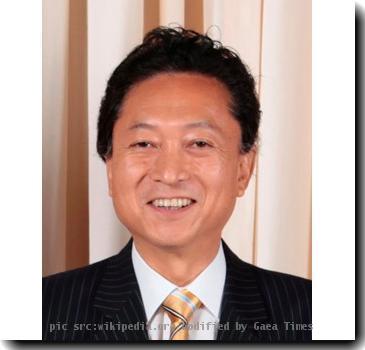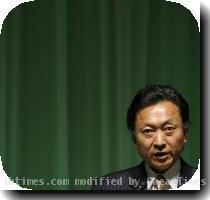Japan’s new PM will honor accord with US over contentious Marine base on Okinawa
By APTuesday, June 8, 2010
Japan’s new PM says he’ll honor base deal with US
TOKYO — Prime Minister-elect Naoto Kan says Japan will honor an agreement with Washington to move a key Marine base to a less crowded part of Okinawa — an issue that led to the downfall of his predecessor.
In a press conference after he named his Cabinet on Tuesday, Kan also said he would try to reduce the burden on the island for hosting many U.S. military bases that are part of a joint security pact.
Ex-Prime Minister Yukio Hatoyama stepped down last week after he was criticized for failing to keep a campaign promise to move U.S. Marine Air Station Futenma off Okinawa. That decision that has angered local residents.
THIS IS A BREAKING NEWS UPDATE. Check back soon for further information. AP’s earlier story is below.
TOKYO (AP) — Japan’s incoming government named its new Cabinet on Tuesday, keeping core members in place to address the country’s deep economic and foreign policy issues but adding several fresh faces to win back voters ahead of upcoming elections.
Prime Minister-elect Naoto Kan, whose administration will officially be sworn in Tuesday evening, chose to maintain the bulk of the existing Cabinet, including the country’s powerful foreign and defense ministers. But he also added some new, younger members as he seeks favor with voters angered by the former government’s broken campaign promises and financial scandals.
“With freshness and professionalism, we would like to create a government that is thoroughly clean and accountable,” said new Chief Cabinet Secretary Yoshihito Sengoku.
Among the new picks are Renho, a well-known celebrity and former television announcer who was featured in the media as she grilled bureaucrats in public budget debates last year. The former model, who at 42 will be the youngest member of the new Cabinet, goes by one name and will be minister of administrative reforms.
Kan, who previously served as finance minister, will be replaced by former subordinate Yoshihiko Noda, who favors financial discipline and is against heavy public spending or more borrowing by Tokyo.
Noda must take the lead in crafting the government’s new strategy on fiscal reform, which is expected by the end of this month. Japan has the largest public debt among industrialized nations, at 218.6 percent of its gross domestic product in 2009, according to the International Monetary Fund.
He has said he sees the Greek debt crisis as a warning for Japan’s tattered public finances.
Japan’s sixth prime minister in four years, Kan was to be officially be sworn in later Tuesday in a ceremony with Emperor Akihito.
The plain-spoken Kan, known for his sometimes fiery temper and for exposing a government cover-up of HIV-tainted blood products in the mid-1990s, was elected prime minister in a parliamentary vote last week to replace Yukio Hatoyama, who said he would step down last week amid voter dismay over his broken campaign promises and perceived weakness as a leader.
Hatoyama and powerful ruling party insider Ichiro Ozawa led the Democratic Party to a historic victory last year and initially enjoyed broad popular support. The party’s approval rating also suffered as both men got caught up in funding scandals.
The retention of the foreign and defense posts are especially important given increased tensions in the region after the alleged sinking of a South Korean patrol ship by a North Korean submarine two months ago, as well as Tokyo’s continuing negotiations over a controversial U.S. Marine base on the southern island of Okinawa.
Kan’s reputation and common roots — in contrast to several of the previous leaders who all hailed from politically elite families — could boost the DPJ’s fortunes, analysts say.
“What the Japanese public wants is a government that solves problems for them. They want a government that works for them, not lofty promises,” said Sheila Smith, a senior fellow at Council on Foreign Affairs in Washington.
Recent polls show that the Democrats have already won back a measure of voter trust.
A poll published Tuesday in the national Sankei newspaper showed that 57 percent of recipients have high expectations for the new government, and support for the party has recovered to 31 percent, versus 18 percent from before Hatoyama stepped down.
The Sankei survey was conducted through random telephone interviews of 1,000 eligible voters. It did not give a margin of error, but that sampling size would normally have a margin of about 5 percentage points.
Associated Press writers Malcolm Foster and Shino Yuasa contributed to this report.
Tags: Asia, East Asia, Japan, North America, Tokyo, United States, Yukio Hatoyama

